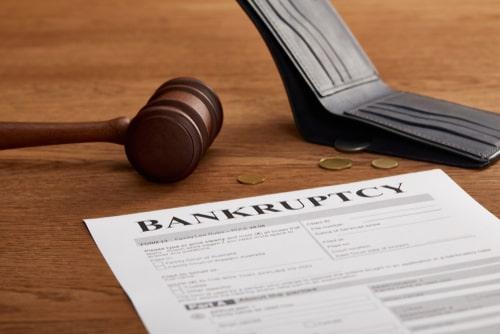5 Common Myths and Misunderstandings About Bankruptcy
 With the rising cost of living and high levels of consumer debt, bankruptcy is becoming a more popular option for Americans who are struggling to make ends meet. However, there are still many misunderstandings related to bankruptcy laws and procedures that can lead people to jump to conclusions and make uninformed decisions. In situations involving large debts, you will want to understand your rights and options, and with the help of an experienced bankruptcy attorney, you can take steps to avoid further problems and regain financial stability. Here are some common bankruptcy-related myths and the truth about how issues related to debt may be handled before, during, and after the bankruptcy process:
With the rising cost of living and high levels of consumer debt, bankruptcy is becoming a more popular option for Americans who are struggling to make ends meet. However, there are still many misunderstandings related to bankruptcy laws and procedures that can lead people to jump to conclusions and make uninformed decisions. In situations involving large debts, you will want to understand your rights and options, and with the help of an experienced bankruptcy attorney, you can take steps to avoid further problems and regain financial stability. Here are some common bankruptcy-related myths and the truth about how issues related to debt may be handled before, during, and after the bankruptcy process:
Myth 1: Bankruptcy Is a Sign of Failure
The truth is that receiving debt relief through bankruptcy is not an indication that you are irresponsible with your finances or that you have failed to properly account for your income, assets, and debts. Most people who pursue bankruptcy do so because of financial issues they have encountered through no fault of their own, such as unexpected medical bills or debts that occurred due to the loss of a job. Bankruptcy offers you the opportunity to get back on track financially. It provides relief from debts you cannot pay and gives you the chance to start fresh. With careful planning, it can be an effective tool in your overall financial strategy and provide much-needed relief in difficult times.
Myth 2: All of My Assets Will Be Taken Away if I File for Bankruptcy
You may be concerned that you will have to turn over money you have saved or other property you own when you file for bankruptcy. However, depending on the specifics of your case, including the type of bankruptcy protection you are seeking, you may be able to keep most or all of your assets. While a Chapter 7 bankruptcy is known as a "liquidation" bankruptcy in which some of a debtor's assets may be turned over and sold to repay debts to creditors, you can make use of exemptions to keep certain types of property. Many Chapter 7 cases are "no-asset" bankruptcies that will allow a person to exempt all of the assets they own. In a Chapter 13 bankruptcy, also known as a "reorganization" bankruptcy, you will usually be able to avoid the loss of any assets as long as you complete a three-to-five-year repayment plan.
Myth 3: All of My Debts Will Be Wiped Clean by Filing for Bankruptcy
While bankruptcy will allow many debts to be eliminated, there are certain types of debts that cannot be discharged during the bankruptcy process. These include child support and alimony payments, student loans, and most taxes (although some taxes may be dischargeable), as well as any debts related to a criminal conviction or fraud against another person or entity. By understanding your options for bankruptcy and debt relief, you can determine the best ways to deal with these and other debts.
Myth 4: Everyone Will Know That I Have Filed for Bankruptcy
You may be concerned that people in your life—from your neighbors down the street to your boss at work—will know whether you have taken steps to eliminate debts through bankruptcy. However, this is usually not the case. Although creditors must receive notice when you file for bankruptcy protection, your case generally will not become public knowledge. However, there are some cases where people such as landlords or prospective employers may find out about your bankruptcy filing when they review your credit report looking for proof of financial stability.
Myth 3: Bankruptcy Will Ruin My Credit Score Forever
While a bankruptcy filing may lower your credit score in the short term, if you are considering bankruptcy, it is likely that your credit score has already been affected by missed payments or unpaid debts. In reality, a bankruptcy filing will usually only appear on your credit report for seven to 10 years, and after you discharge debts through bankruptcy, you can take steps to rebuild your credit over time.
Contact Our Charlotte Bankruptcy Attorney
Understanding common myths and misunderstandings about filing for bankruptcy can help you make an informed decision when considering this option as part of your overall financial plan. If you are considering filing for Chapter 7 or Chapter 13 bankruptcy protection, an experienced Gaston County bankruptcy lawyer at Blossom Law PLLC can answer any questions you may have and guide you through the process. To learn more about the steps you can take to receive relief from your debts, call our office at 704-256-7766 and schedule a free consultation.
Sources:
https://www.nerdwallet.com/article/finance/5-bankruptcy-myths-dispelled
https://money.usnews.com/credit-cards/articles/bankruptcy-myths-debunked


 704-BLOSSOM
704-BLOSSOM

